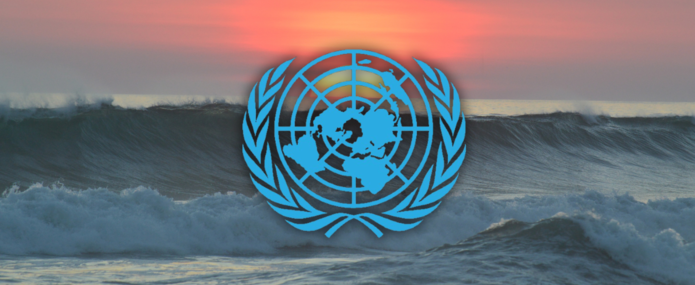Celebrated on June 8, this year's World Ocean Day marks the beginning of an important series of events where the international community will convene in various fora to discuss the conservation and sustainable use of marine biodiversity. An opportunity for IDDRI to present several proposals aimed at making these events significant milestones for ocean protection.
This year, World Ocean Day is celebrated in Costa Rica, where State representatives and stakeholders will gather for the “Immersed in Change” conference. This event kicks off the countdown to the third United Nations Ocean Conference (UNOC3), set to take place a year later in Nice, France. It aims to spotlight globally significant ocean issues and to promote concrete steps to address the threats impacting the marine environment.
From Cali to Baku
A few months later, in October, the international community will meet in Cali, Colombia, for the 16th Conference of Parties (COP) to the Convention on Biological Diversity (CBD). By then, each country will need to revise its National Biodiversity Strategy and Action Plan (NBSAP) and submit national targets aligned with the Kunming-Montreal Global Biodiversity Framework (GBF), adopted in 2022. Particular attention will certainly be paid to the national commitments to implement Target 3, also known as the 30x30 target, which calls for the conservation and management of 30% of coastal and marine areas through "protected areas and other effective area-based conservation measures" by 2030. With Marine Protected Areas (MPAs) currently covering only about 8%, the international community faces a significant challenge to achieve this target in the next six years. To address this, our Issue Brief proposes a roadmap with recommendations for implementing the 30x30 target in the ocean. In particular, it calls States to (i) include a national roadmap for the establishment of MPAs into their NBSAP, (ii) start immediately to identify potential high seas MPA sites, launch consultative processes and anticipate implementation challenges and (iii) to set up a specific mechanism to assess the implementation of the 30x30 target in the ocean to feed into the 2028 discussions at CBD COP18 and potential UNOC4, closing the gap left by the Kunming-Montreal agreement.
A month later, COP29 of the United Nations Framework Convention on Climate Change Conference (UNFCCC) will be held in Baku, Azerbaijan. In this regard, these recent years have seen a gradual and continuous integration of the ocean into climate discussions, materializing in three complementary fields: (i) Science, evident through the development of specific research on the links between the ocean and climate, with key milestones such as the 2019 Intergovernmental Panel on Climate Change's (IPCC) Special Report on the Ocean and Cryosphere in a Changing Climate; (ii) National engagement, as reflected in Nationally Determined Contributions (NDCs) increasingly covering marine issues; (iii) Intergovernmental cooperation, especially through various UNFCCC workstreams. Our Issue Brief, along with the supporting Note, identifies ways of stepping up action, strengthening the place of the ocean in the climate regime, harnessing the mitigation and adaptation potential of the marine environment and reinforcing the synergies with the biodiversity and ocean related conventions.
UNOC3: an opportunity to tackle challenges insufficiently covered by international cooperation
Then it will be time for UNOC3. France has already identified a number of themes that will be central to the conference, including high seas governance, deep sea mining and sustainable fisheries management. Beyond these crucial issues, which are obviously crucial, IDDRI believes that this conference should be an opportunity to tackle challenges that are currently insufficiently covered by intergovernmental cooperation.
This is the case for marine pollution resulting from terrestrial activities, for instance. As of today, it is estimated that land-based sources contribute to about 77% of marine pollution. Notwithstanding the large number of agreements and initiatives aimed at addressing land-based sources of marine pollution, the marine environment continues to receive unacceptable levels of pollutants from land-based activities via subterranean, riverine and atmospheric vectors. In 2025, the international community will commemorate the 30th anniversary of the Washington Declaration and the inception of the Global Programme of Action for the Protection of the Marine Environment from Land-based Activities (GPA). This significant milestone coincides with the organization of UNOC3. Our Issue Brief, and the Note supporting it, argue that this juncture offers a timely opportunity for the global community to initiate a new phase in combating land-based pollution. To that end, it calls for the launch of a coalition of like-minded countries wishing to reinvigorate, support and/or create new global and/or regional mechanisms that address land-based pollution.
This is also the case for coastal and maritime tourism, one of the world's fastest growing and most globalized sectors, with significant impacts on nature and communities’ well-being. Yet, tourism remains largely outside the scope of the international ocean discussions. Co-hosted by France, a world leading tourist destination, and Costa Rica, known for its nature-based tourism model, UNOC3 could serve as a launching platform for elevating the place of sustainable tourism on the ocean governance agenda. This is what the report Let’s be Nice to the Ocean: Civil Society Approaches to Ocean Protection towards the Third UN Ocean Conference (Varda Group, June 2024), to which IDDRI contributed, in collaboration with Eco-Union, advocates for.
The next few months will therefore be marked by a number of important international events for the Ocean. In each relevant forum, all available levers must be used to strengthen measures for the conservation and sustainable use of marine biodiversity. In addition, it will be particularly important to reinforce synergies between the various agendas at intergovernmental level, as well as within national policies.


